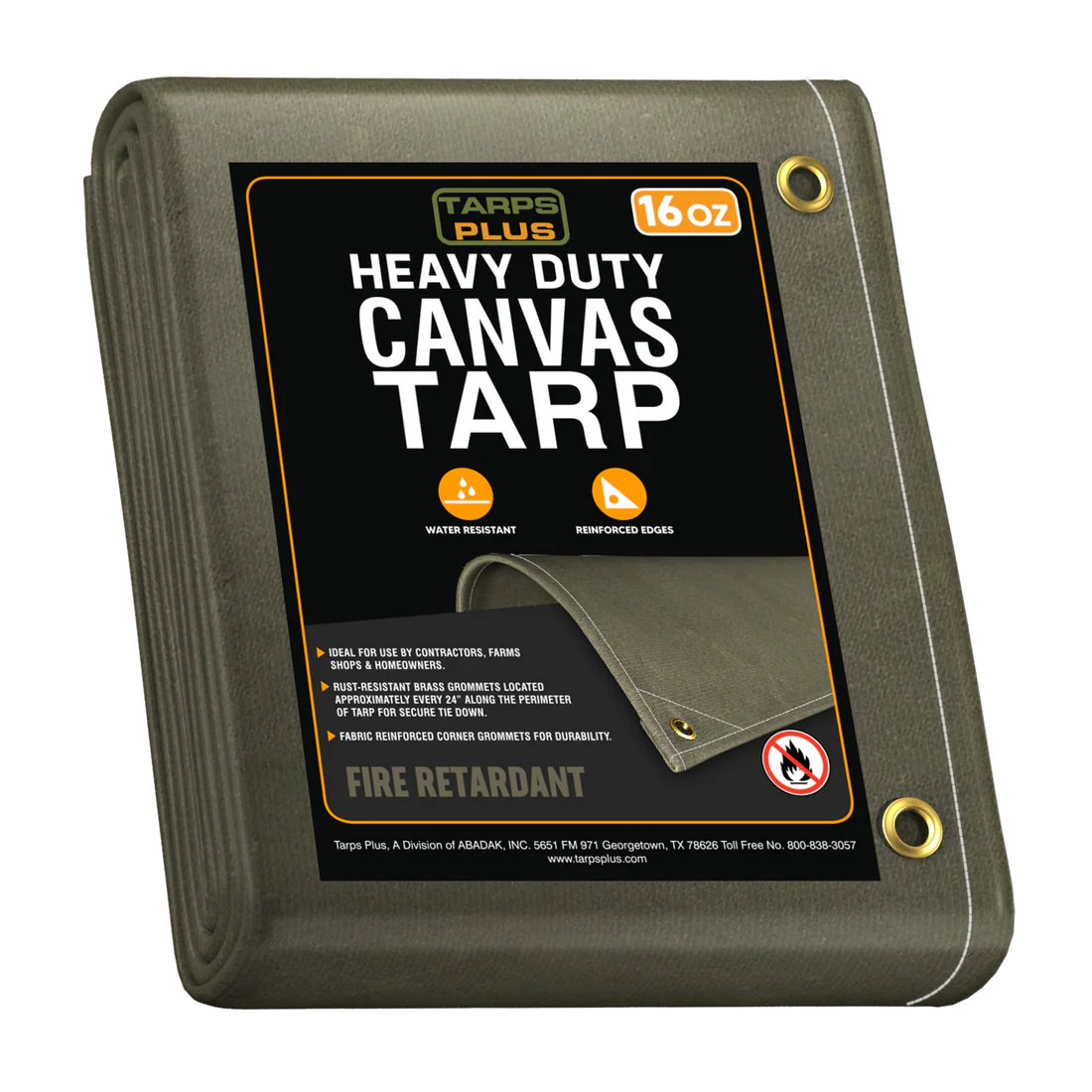Every construction project, big or small, faces one common challenge—unpredictable weather. Rainstorms, scorching heat, strong winds, or even unexpected dust can bring work to a halt, damage materials, and increase costs. This is why waterproof tarps for construction have become essential tools on job sites across the world. Far from being simple covers, tarps act as shields that safeguard investments, equipment, and workers.
One company that has built a strong reputation in this space is Tarps Plus, a trusted supplier of high-quality tarps. With their wide variety of products and durable designs, they have become the go-to choice for builders and contractors who need reliable protection on site.
Why Waterproof Tarps are Essential for Construction
In construction, time is money. Any delay caused by weather or material damage can escalate expenses quickly. This is where tarps make a real difference.
1. Protecting Materials
Materials like wood, cement, drywall, or electrical supplies can be ruined by moisture. Once exposed to rain, cement clumps, wood warps, and drywall loses its strength. Waterproof tarps for construction keep these resources dry, extending their usability.
Example: Imagine a contractor storing 50 bags of cement outdoors. A sudden shower without proper coverage can make those bags useless. A heavy-duty tarp prevents such loss.
2. Equipment and Machinery Safety
Construction machinery is expensive and often exposed to harsh conditions. Covering bulldozers, mixers, and scaffolding with tarps prevents rust, electrical damage, and unnecessary wear.
3. Worker Comfort and Safety
Scorching sun and slippery surfaces after rain pose safety hazards. By creating shaded areas or keeping work zones dry, tarps reduce accidents and make conditions more manageable for workers.
4. Keeping Projects on Schedule
Delays due to weather can stretch deadlines and increase costs. By using tarps effectively, construction can continue with fewer interruptions.
Types of Waterproof Tarps for Construction
Not every project requires the same tarp. Tarps Plus provides a wide variety of waterproof tarps, ensuring the right solution for every situation.
-
Poly Tarps – Lightweight, flexible, and completely waterproof. Ideal for covering piles of materials, tools, or temporary roof structures.
-
Vinyl Tarps – The strongest choice for construction sites. They resist abrasions, chemicals, and heavy winds, making them perfect for industrial projects.
-
Canvas Tarps with Waterproof Coating – Strong and breathable, good for situations where air circulation is needed but water protection is also important.
-
Clear Tarps – These are waterproof while still allowing visibility and light, great for enclosing scaffolding or creating temporary workspaces.
Each type has its role, and contractors often use multiple tarps across a single site to address different needs.
Key Features to Look For
When selecting waterproof tarps for construction, keep these features in mind:
-
Durability – Heavy-duty fabric resists tearing during rough use.
-
Grommets and Reinforced Edges – Allow tarps to be tied securely, preventing them from flying away in strong winds.
-
UV Resistance – Extends lifespan under prolonged sun exposure.
-
Fire Retardant Options – Especially important in areas where welding or sparks are present.
-
Size and Flexibility – From small covers for equipment to massive sheets for scaffolding, Tarps Plus offers a wide size range.
Practical Uses of Tarps on Construction Sites
Waterproof tarps are versatile and can be applied in several ways:
-
Material Covers: Protect lumber, cement, drywall, and metal from moisture.
-
Temporary Roofing: When roofs are incomplete, tarps serve as an immediate shield against rain.
-
Scaffolding Protection: Tarps wrap around scaffolds, reducing wind, dust, and water impact.
-
Ground Covers: Prevent mud and puddles from slowing down work.
-
Worker Shelters: Provide shaded rest areas in hot climates.
-
Dust Barriers: Keep neighboring areas cleaner by blocking construction dust.
Why Tarps Plus is the Trusted Choice
When investing in construction supplies, contractors need products that won’t fail under pressure. Tarps Plus has become a reliable source because of:
-
Quality assurance – Their tarps are manufactured for toughness and long life.
-
Variety – From poly to vinyl to specialty tarps, they cover every construction need.
-
Customization – Specific sizes and designs can be tailored for large-scale projects.
-
Affordability – Durable products at competitive pricing.
-
Nationwide trust – Contractors, industries, and homeowners across the U.S. rely on their products.
Best Practices for Using Tarps Effectively
Even the best tarps need proper handling. Here are tips to get the most out of your investment:
-
Secure tarps with ropes, bungee cords, or ratchet straps to prevent wind damage.
-
Avoid sharp edges that could tear the tarp; use padding if necessary.
-
Regularly inspect for wear and replace when damaged.
-
Store tarps dry and folded properly when not in use.
Long-Term Benefits of Using Construction Tarps
While waterproof tarps might seem like a small part of a project, they provide long-term benefits:
-
Cost Savings – Preventing damage saves thousands of rupees or dollars in replacement costs.
-
Efficiency – Workers can continue tasks without waiting for ideal weather.
-
Safety Compliance – Reduces risks of injury and helps maintain OSHA or local safety standards.
-
Professionalism – A well-protected site shows clients that the project is managed carefully.
Final Thoughts
In today’s fast-paced construction world, preparation is key. Unexpected weather, dust, and debris can cause costly setbacks. That’s why using waterproof tarps for construction is not just an option—it’s a necessity. From protecting raw materials and machinery to keeping workers safe, tarps provide multi-layered protection that ensures projects run smoothly.
For builders and contractors who demand durability, versatility, and value, Tarps Plus remains the trusted partner. Their extensive range of tarps makes them a one-stop solution for every construction need.
When you invest in the right tarps, you’re not just buying a cover—you’re buying peace of mind for your entire project.


